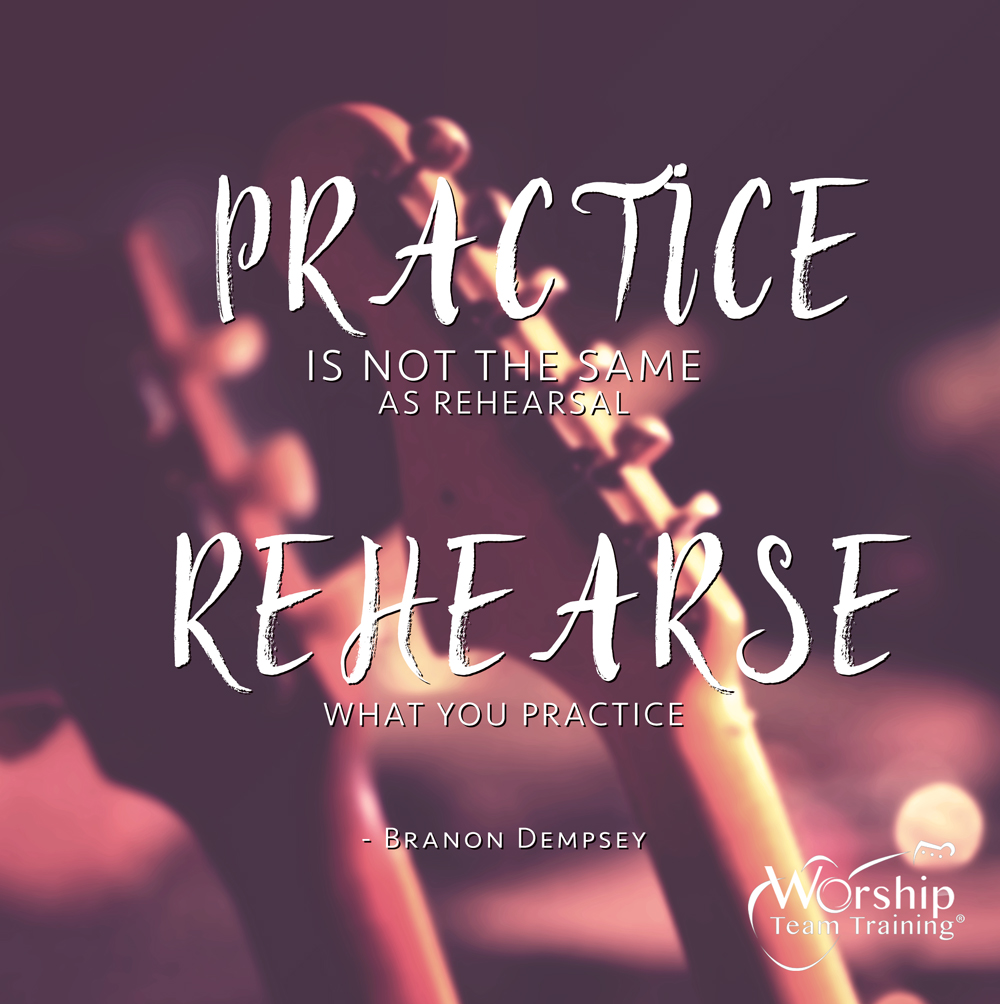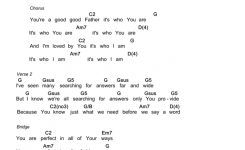Band, Leaders, Players, Singers, Vocal Team, Worship Leading
7 Keys To A Great Rehearsal (Show #25)
 #RehearseYourPractice (Video Below)
#RehearseYourPractice (Video Below)
Rehearsal is not practice; practice is not rehearsal. As a worship team member and leader, how does your practice perfect your rehearsal? You will find that the better you prepare, the better you help your team in heart, skill and music. We can easily justify our “busyness” and excuse ourselves from practicing. But I think being busy is no longer a valid reason. Truth is, God gave you and I the responsibility.
The benefit? You will find that your practicing and rehearsing will work together to take the pressure off as you lead your church in worship. The Lord gives strength to his people; the Lord blesses his people with peace. – Psalm 29:11 (NIV) Once we commit to doing something, it’s better to do it, or we shouldn’t sign up at all.
Downright, it’s about doing our diligence by showing our integrity to serve the church. What helps me? Create a calendar time and stick to it. Make it fun and keep it simple. I load up Music Stand on Planning Center, get the listening examples at my finger tips, my instrument and go. I usually schedule about an hour and manage my time. There’s a whole lot you can do in 60 minutes. To begin, select the most unknown or challenging song first.
Look at the song form and map out the cues, sections and repeats. After listening to the tune or reading the chart, identify the tough parts. Annotate or type out notes, chords, etc and mark up that puppy! Practice before you rehearse; rehearse what you practice. Set the click to practice and use a piano to check the correct notes/pitches. Work your way through the song backwards and then run it-up top to bottom.
Afterwards, move on to the next song, and end on practicing the easiest tune. Usually, I’ll touch all the service songs and overview any new ones. The process above can be done in many different ways and different lengths of time. This is my average default setting. Bottom line, I keep myself in motion.
You’d be surprise of the pay-off. Practice doesn’t make u perfect, but u can perfect your practice. Remember, rehearsal and practice are not the same thing. You practice before rehearsal, rehearse what you practice, and lead what you rehearse.
Take care of the things of God and God will take care of you, plus the music and worship. At the same time, you are constantly developing skill, rather than developing excuses. Whatever you have learned or received or heard from me, or seen in me—put it into practice. And the God of peace will be with you. Thanks for Their Gifts – Philippians 4:9 (NIV)
Here are a few points by good friend Mark Cole on Worship Charts:
One of the keys to having an excellent rehearsal is preparing great worship charts. I have found that worship bands frequently go into rehearsals with haphazard charts. No one has taken the time to really think through all the details of the songs.
Next level leaders are prepared and a big part of that preparation is working on excellent charts. There are two main forms of charts: a) the fully notated SAT chart, b) the words and chords only. I prefer the full written out chart because it gives you more details. But whatever charts you use, ask yourself these 7 questions to make sure the charts are clear and well-thought through.
1. What is the best tempo for this song?
Have you notated it somewhere? Who counts off the song? Are you using a click track or metronome to quickly dial into the correct tempo?
2. What is the best key?
Have you taken the time to make sure that this is the best key for the leader, congregation and band? Does this key flow well with the songs before and after it? Is this key too high or low for the congregation to sing with all their hearts? Have you double-checked all the chords?
3. What do you want the vocals to sing?
When do you want the leader singing alone and when do the other singers sing? When does the song go into 2 or 3 part harmony? What singers are singing this week? What is the best way to utilize their strengths? Have you sung through all the parts and learnt them so you can help the singers sing their correct harmonies? Are all the words correct?
4. Is this the best musical form for this song?
How do you want the introduction to go? How do you want to end the song? What is the best musical form for this song? How many times do you repeat each section? Do you have a reprise ready in case the song ‘takes off’? What is the recording you are basing this arrangement on?
5. What is the main musical feel?
Is this a guitar or keyboard driven song? What is the drum groove? What rhythms do you want the bass player to play? What is the acoustic guitar, electric guitar and keyboard grooves? When does the band pause?
6. What instruments do you want or need for this arrangement?
When do players sit out in this song? When does the full band come in? What synth, guitar or other instrumental sounds do you need? Is there a drum only section?
7. What are the key instrumental lead lines?
Are the lead lines played by keys, guitar or both? Are they notated to help you remember? Have you asked the players to learn their parts before your rehearsal? To do music at an excellent level, the leader or musical director needs to think through all the details. Confidence and excellence comes with preparation.
Question:
What can you add to this list?
What is working in your rehearsals?
What charts do you use?
God arms you with strength as you make your skill and music about Him. Prepare your team by better preparing your practice. Praise be to the Lord my Rock, who trains my hands for war, my fingers for battle. – Psalm 144:1 (NIV)
@MarkMCole @BranonDempsey @WorshipTT
Mark Cole, along with Branon Dempsey is one of our Worship Team Training Instructors; how would your entire worship ministry benefit from live customized training at your church.
Discover what a Weekend Workshop of Hands-on practical instruction can do for you!
Copyright 2016 Worship Team Training®









